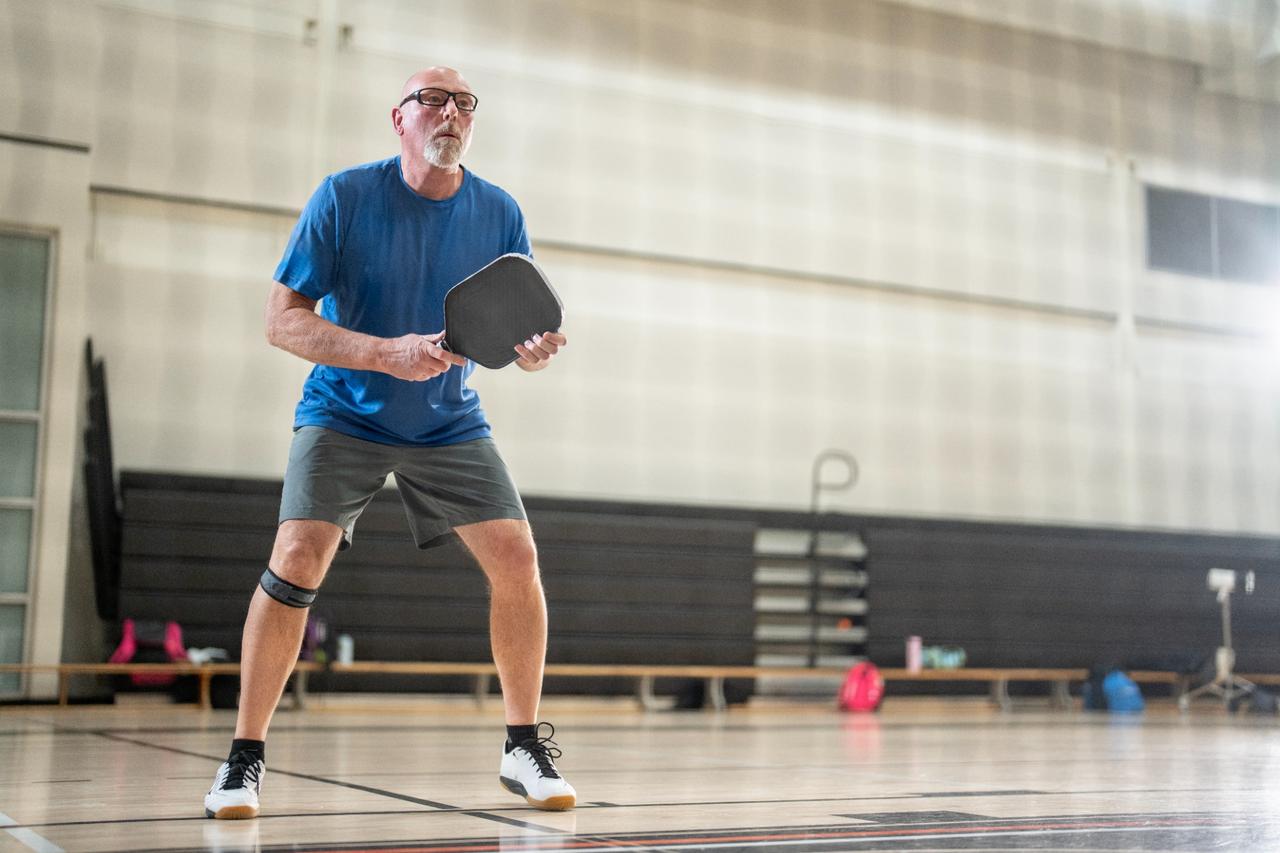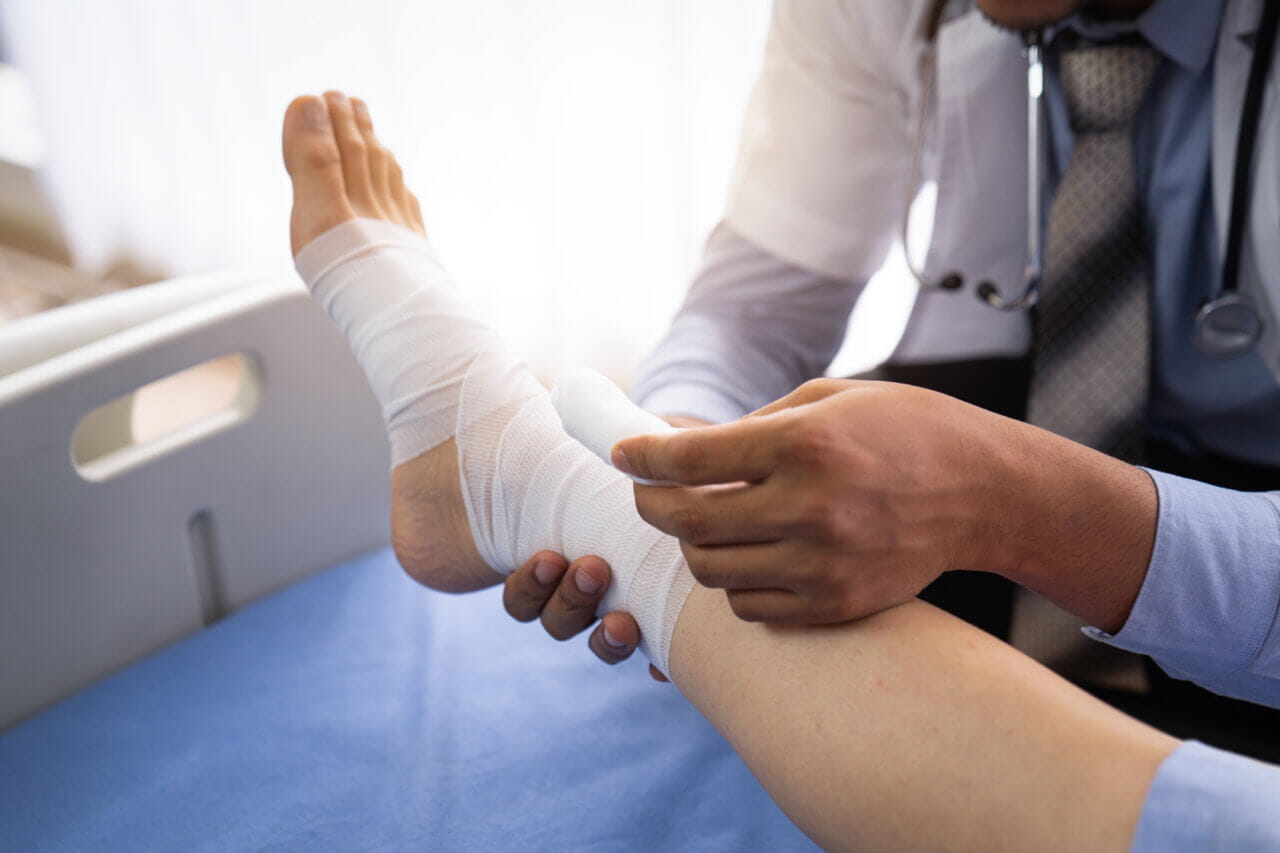Pickleball Related Knee Pain

One of the reasons for pickleball’s rapidly growing popularity is that it’s a low-impact sport. While the game is fast-paced and requires players to stop, start and change directions quickly, it’s still gentler on the body than many other sports. Even so, injuries can occur, including to the knees, which absorb lots of energy as they facilitate movement around the court.
This article provides tips on how to avoid pickleball-related knee pain. If injuries occur, it also explains how to treat them.
Common Causes of Knee Pain From Pickleball
Playing pickleball can adversely affect the knees in various ways. Some of the most common causes of knee pain from the sport include:
Ligament Sprains
Several ligaments support the knee, including the anterior cruciate ligament (ACL), posterior cruciate ligament (PCL), medial collateral ligament (MCL) and lateral collateral ligament (LCL). Sudden starting and stopping, pivoting and landing after jumping to make a shot can sprain these ligaments, causing pain, swelling and instability in the knee joint. Other injuries might include an ACL injury or MCL tear.
Patellar Tendonitis
The patellar tendon connects the kneecap to the shinbone. Repetitive movements and sudden changes in direction can strain this tendon, causing pain just below the kneecap. Repetitive movements and sudden changes in direction can strain this tendon, causing tendonitis that produces pain just below the kneecap.
Meniscus Tears
A meniscus is a C-shaped piece of cartilage that helps cushion the knee joint. Each knee has two menisci. The twisting and pivoting movements common in pickleball can tear this cartilage, causing pain, stiffness, and, sometimes, a locking or clicking sensation in the knee.
Osteoarthritis
Osteoarthritis is a degenerative condition of the joints that causes cartilage to break down. Pickleball doesn’t cause osteoarthritis, but playing can worsen the symptoms, causing increased knee pain and stiffness. See our overview of osteoarthritis care and options.
Tips for Preventing Pickleball-Related Knee Pain
You can reduce your risk of knee pain from pickleball by focusing on the stability and flexibility of your knee joints. Here are some ways to do that:
Strengthen Your Leg Muscles
Your quadriceps, hamstrings and calf muscles support your knees as you move. Exercises like squats, lunges and calf raises strengthen these muscles, increasing the support they provide.
Increase Your Flexibility
The best support for your knee joints comes from muscles that are toned but also flexible. Daily stretching of your hamstrings, quadriceps, calves and hip muscles helps you achieve that goal.
Pay Attention to Your Core
If your core muscles are weak, muscles elsewhere (including around your knees) have to compensate. Exercises like planks, Russian twists and crunches can help create a stronger, more supportive core.
Another action you can take to protect your knees when playing pickleball is to learn and practice proper footwork. Moving efficiently around the court reduces the stress on your knees and also reduces your risk of falls that can cause other types of injuries.
It’s also crucial to wear supportive footwear. Many picklers are surprised by the difference good shoes can make in reducing the stress on their knees.
How to Treat Knee Pain From Pickleball
Some knee injuries require medical treatment, like physical therapy or even surgery. If you think the pain you’re experiencing might be due to this type of injury, it’s crucial to contact your healthcare provider. They can do a physical exam and order imaging to determine what’s causing your pain and prescribe treatment.
Other causes of knee pain can be treated at home with actions that include:
- Rest, ice, compression and elevation (RICE).
- Over-the-counter pain medication.
- Avoiding pain-inducing movements.
- Wearing a supportive knee brace.
Get Help With Pickleball-Related Knee Pain
Pickleball is a fun sport that provides an excellent workout for players of all ages and abilities. However, like any sport, it can lead to injuries, including causing or worsening knee pain.
If knee pain keeps you off the pickleball court or affects your quality of life between matches, take an Orthopedic Health Risk Assessment and talk with your Baptist Health provider. Use our online provider directory to find one.
Next Steps and Helpful Resources
Learn More About Orthopedic & Sports Medicine at Baptist Health
Meniscus Tear: Symptoms & Treatment
Orthopedic Concerns for Pickleball Players
Pickleball After Joint Replacement Surgery


